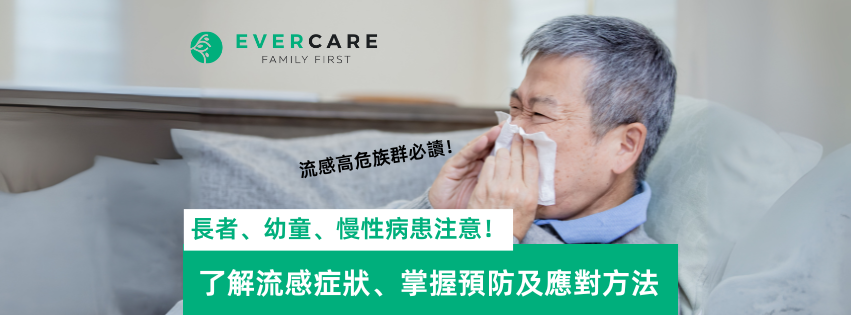Vinny Choi is an Evercare Registered Nurse who has previously served in the Hospital Authority (HA) and practiced in a number of private hospitals, including Hong Kong Sanatorium & Hospital, Union Hospital, and Matilda International Hospital. She was a senior lecturer and taught nursing at Nanyang Polytechnics in Singapore for ten years. Currently, she holds several part-time teaching positions in different institutes, such as Open University LiPACE and Hong Kong Employee Retraining Board.
Caregiving expert and Evercare’s registered nurse Vinny Choi weighs in on post-discharge care in Hong Kong and explains how a simple care plan holds the key to a speedy recovery and long-term quality of life.
Your recovery from a surgery or a chronic illness does not end when you leave the hospital. There are many things you will need to manage yourself – from medication administration, follow-up visits, to complex medical procedures such as dialysis and tube feeding. Without the necessary expertise from doctors and nurses, patients and their family carers can easily feel disoriented. How can you get the same level of medical care at home after hospital discharge? The answer lies in an organised, personalised care plan.
We sit down with Vinny Choi, a senior lecturer and registered nurse whose nursing career spanned over 40 years. Drawing on her decades of experience in caregiving, she discusses the importance of a care plan, and how it can help post-discharge patients and their family carers better manage their care needs and identify further steps needed to take to cover themselves in the event of an unexpected medical crisis.
1. Can you tell us about yourself? What made you choose this field?
I developed an early interest in nursing after taking care of my mother, who suffered from cancer. I wasn’t sure what to expect when I first started, but my confidence grew with time and practice, and my love for caregiving grew fonder as I progressed. Despite the inevitable long hours and stress, my passion has not wavered after all these years.
2. Why is a care plan necessary for a patient’s recovery?
A care plan outlines the type of support needed to facilitate your recovery post-discharge. It is particularly important for elders and chronic patients transitioning from hospital to home because it will determine if the patient is medically fit to continue their recovery back home.
The plan will help healthcare professionals and family carers anticipate care needs and map out follow-up caregiving measures. Each care plan is personal to the patient, and it should take into consideration what’s important to the patient and their family, as well as their preferences.
If your loved one has just undergone surgery or have been discharged from the hospital, you can consider taking advantage of Evercare's post-operative care services to get 24/7 support throughout the recovery journey.
3. Who can help personalise a care plan?
Registered nurses will start planning your post-discharge care soon after you’re admitted to the hospital. They will provide guidance to both patients and their carers to ensure that patients receive the care as advised. They will learn how to take care of the wound, manage medication, and incorporate special dietary requirements and restrictions.
4. How is a care plan formulated?
Step 1: Assessment
Assess the patient’s health status and psychological and emotional state by reviewing doctors’ orders. Collect and analyse the patient’s data (e.g. vital signs).
Step 2: Nursing Diagnosis
Identify potential causes of symptoms, such as the causes of constipation, anxiety and mood change, and irregular breathing patterns. Unlike a medical diagnosis, a nursing diagnosis has to be conducted by a registered nurse.
Step 3: Planning
Devise strategies to manage symptoms. For example, the care plan will recommend lifestyle changes to relieve constipation, including an adjustment in fibre and water intake. Medication may be allocated when these measures are proved ineffective.
Step 4: Implementation
Put the plan into action. A nurse will help monitor the patient for signs of change or improvement, conduct important medical tasks, educate and guide the patient about further health management.
Step 5: Evaluation
Assess the outcome after a cycle of treatments. If the outcome is not satisfactory, nurses will go back to the first step to determine whether there’s a need for treatment change.
Evercare wants to be part of your recovery process from start to finish. Book a FREE consultation with us so we can help you plan for your post-discharge recovery.
You might also like:
- How Home Care Services Help Your Elderly Loved Ones With Better Post-Discharge Care
- Hospital Discharge Planning in Hong Kong: The Missing Piece in Quality Care
- Advance Care Planning – Start Small, Start Now
—
About the expert
其他話題 Other Topics
最新的文章 Latest Posts

喜歡我們的文章嗎?
超過3,000位照顧者已經訂閱我們的資訊!訂閱我們的資訊,你可獲得免費護理工具、專家護理知識和同路人分享。立即訂閱,也可以隨時取消。請在此填寫你的姓名和電郵地址:


